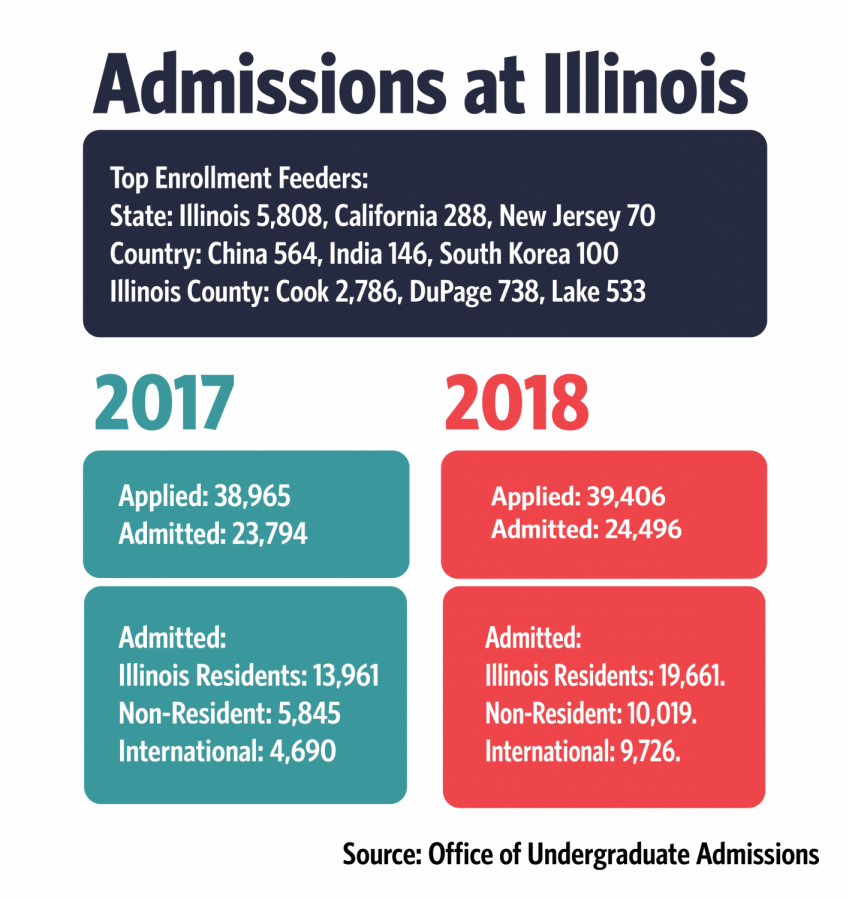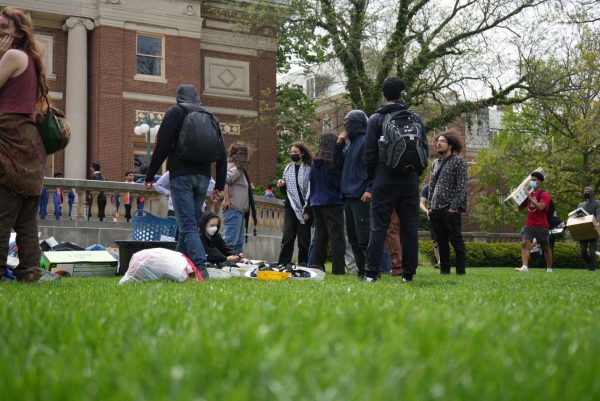UI seeks underrepresented students
April 11, 2019
Since the University publicized its four year Illinois Commitment of free tuition, high school students of underrepresented backgrounds have the chance to receive high-quality education.
The Illinois Commitment states the University will help cover tuition for qualified students in the new class of 2019.
Andrew Borst, director of the Office of Undergraduate Admissions, said in an email the Illinois Commitment has been a game changer for the University.
“It has certainly helped us to increase applications from students who are from down-state Illinois, in the City of Chicago, from historically underrepresented backgrounds, first generation students and low-income students,” Borst said.
The University on average accepts two out of five applicants, most of whom are in-state students.
Get The Daily Illini in your inbox!
“We admit approximately 25% more in-state residents than we did 10 years ago,” Borst said.
In 2018, more than 5,000 students from Illinois applied to the University. In the early 2000s the University had minor issues with admissions scandals, particularly in the College of Law.
“Many elite universities have experienced problems with admitting some students who got in for the wrong reasons in the past few decades,” said Vikram Amar, dean of Law, in an email.
Amar said for the class of fall 2018, the College of Law admitted 450 students, which was about 32-33% of the applicants.
“We undertake a holistic review of each applicant, looking at academic and personal qualities, but we accept only people who we believe have the demonstrated ability to succeed in our law school’s curriculum and beyond in the profession,” Amar said.
Often students apply to more than one school, which could be a cause of the increase or decrease of admission numbers.
“Of course, most of the people we admit are also getting into other top law schools, too, so we don’t yield everyone we admit,” Amar said.
Overall, the University had about 40,000 applications for the fall 2018 semester, and half of those applications were Illinois residents.
“We admit a large number of students, and we consistently enroll one of the top 10 largest freshman classes in the country,” Borst said.
Borst said the OUA is optimistic for the fall 2019 incoming class and will thoroughly review all applications to prevent any selectivity of Illinois commitment.
“Selectivity can be a misleading statistic. We’re not trying to add more applications only for the sake of denying more students and increasing our selectivity. We try to be transparent in our admissions process and are looking for the most competitive students among our applicant pool,” Borst said.







